Here's How You Can Mindfully Dispose of All Your Leftover Easter Eggs
Plastic easter eggs aren't sustainable in general, but if you must use them this holiday, there are ways to recycle or reuse them.
Updated March 29 2024, 9:21 a.m. ET
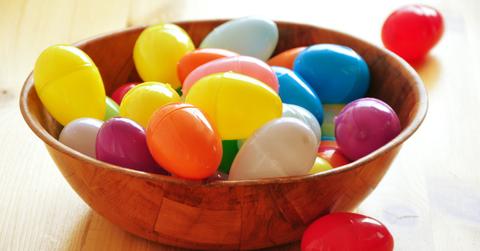
The annual Easter egg hunt is an undeniably fun holiday tradition, but at the end of the day, you're left with massive amounts of discarded plastic waste. And although storing your eggs and reusing them year after year is ideal, there's a relatively likely chance you're looking to get rid of the colorful casings in the most sustainable manner possible.
Can you recycle Easter eggs, or are the colorful plastic toys non-recyclable? Stay tuned for everything you need to know regarding mindful disposal of the festive Easter staples.
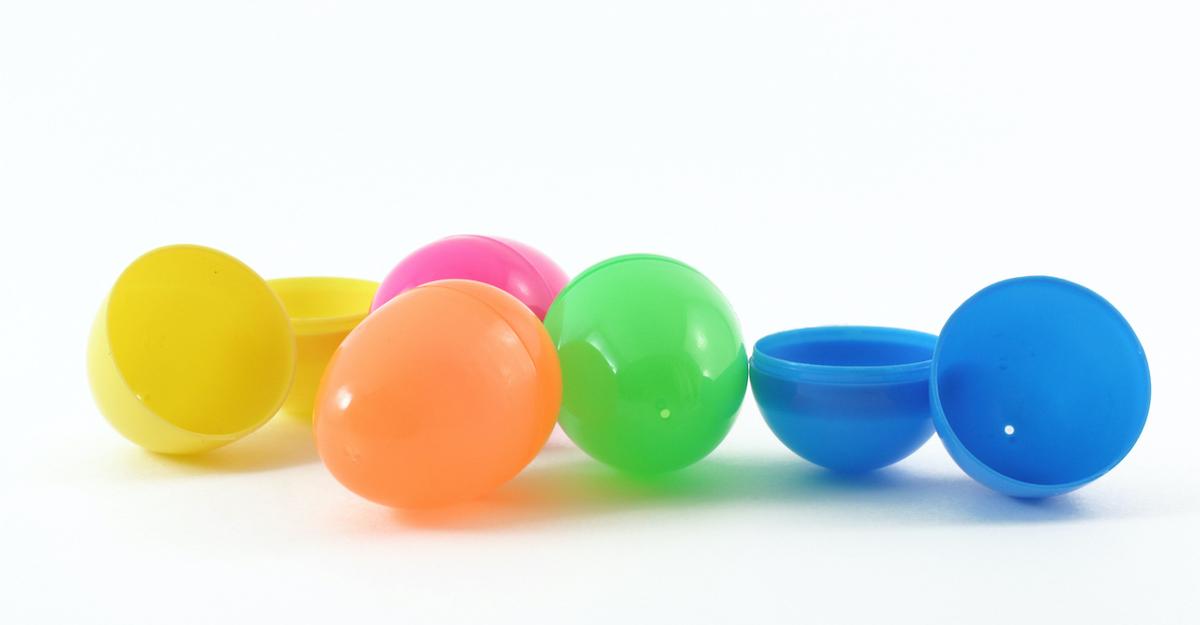
Are plastic Easter eggs recyclable?
As you may know, recycling practices differ by town and city, and those plastic Easter eggs definitely aren't recyclable everywhere. According to Lincoln California Recycling and Garbage, they cannot be recycled in the Sacramento area. However, according to KFVS 12 in Jackson, Miss., they are placed in the 3-7 bin at the Jackson Recycling Center.
Before haphazardly tossing your Easter eggs in the recycling bin, look for a recycling symbol or number on the egg or its packaging, and look it up to see if the material is locally recyclable. If your municipality lists small or thin plastics, such as bottle caps or clamshell containers, they are most likely fine. But if not, your only disposal option is to toss them in the garbage.
Remember it's best to follow your municipality's recycling rules instead of trying to recycle something non-recyclable — aka wishcycling.
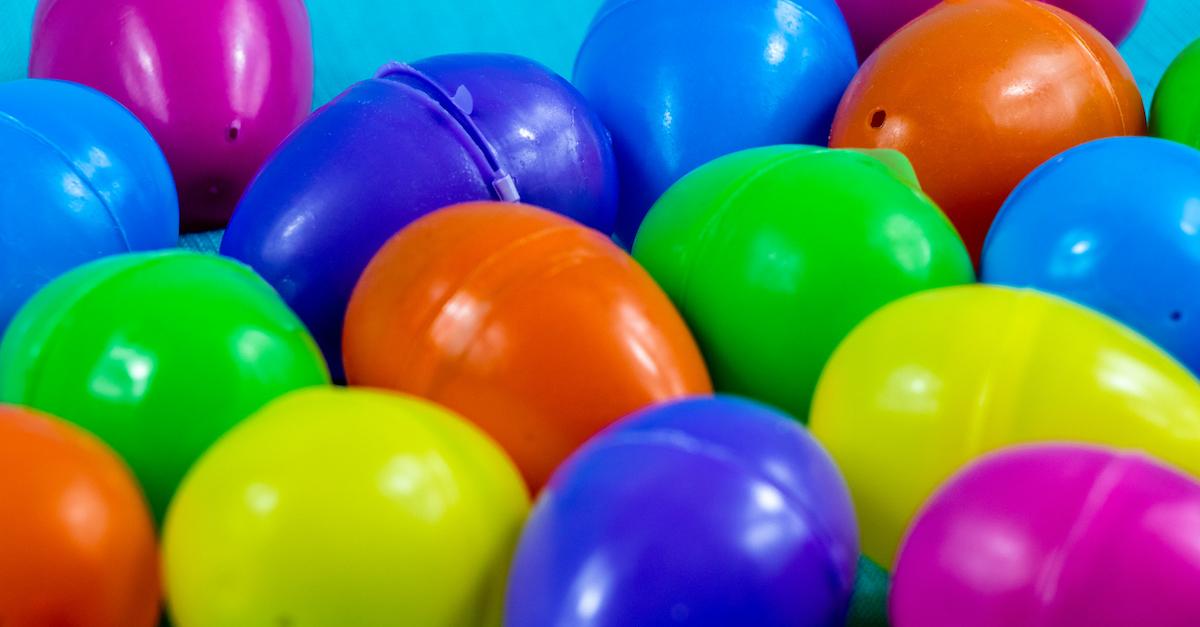
Plastic eggs aren't sustainable in the first place — if you already bought them, reuse or donate them.
The production and shipping of plastic Easter eggs are not sustainable. After they're produced (typically in overseas factories), they are shipped to the U.S., creating a massive environmental footprint, according to Summit Daily. Discarded plastic eggs are too small for many recycling machines, meaning they will simply wind up as trash; not to mention, any eggs missed by your tiny egg-hunters could become litter and hazardous to animals.
However, if you've already bought plastic Easter eggs, you should consider simply keeping them for next year.
Or, if you don't need them anymore, consider donating them to your local secondhand store or listing them on your local Buy Nothing group on Facebook for someone else to use.
PopSugar also came up with several ways to reuse Easter eggs for DIY crafts—from string lights to planters, ornaments, and maracas; there are so many different ways you can upcycle them.
And next time you need to buy Easter eggs, you might consider reusable wooden Easter eggs.
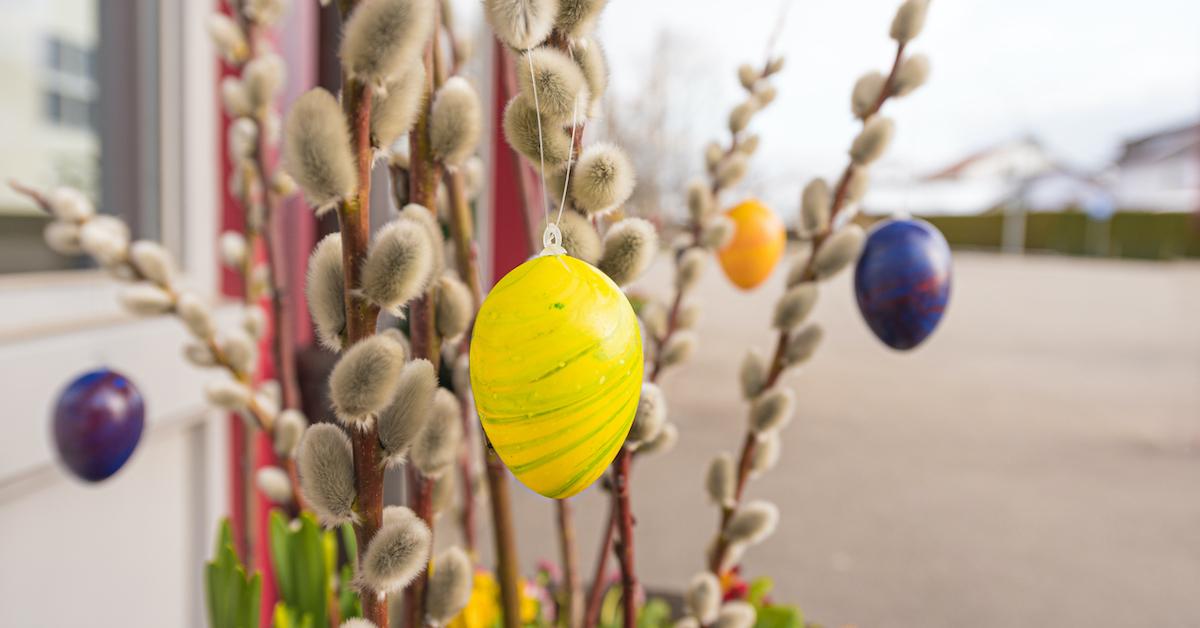
Are real eggs compostable if they're painted with food dye?
In addition to celebrating Easter with a good, old-fashioned egg hunt, a popular tradition is painting eggs with food dye. If you want to do it mindfully, you'll dispose of your discarded eggshells in the compost bin. Eggshells are completely compostable—even if you painted them with food dye—so after you've eaten the hardboiled egg or given it to someone who will, you can toss the remnants in the compost.
Composting is pretty much the same in every setting, regardless of where you live, so if you already have a bin or compost in your backyard, you're basically set.
Although eggshells may be biodegradable, the egg industry is highly pollutive, wasteful, and cruel. So you'd be better off investing in reusable faux Easter eggs that you can use year after year, whether they're made from plastic or, ideally, wood.
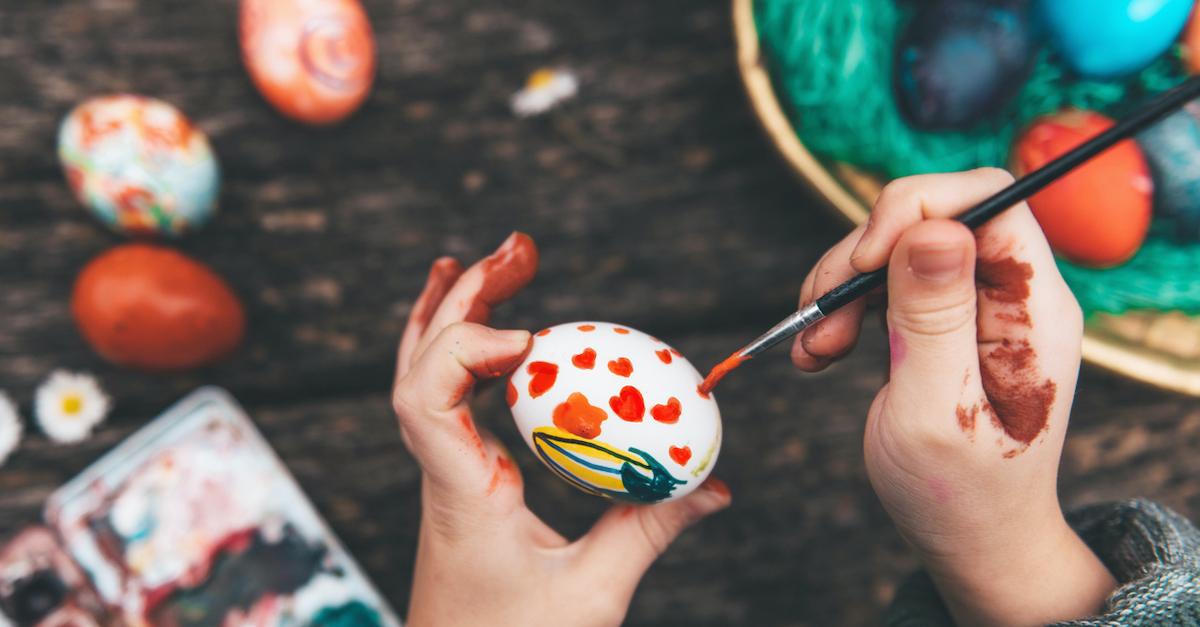
Easter is an undeniably fun holiday, but remember to celebrate mindfully, and reuse what you can. The Easter bunnies of the future are counting on you.
This article, originally published on April 13, 2020, has been updated.